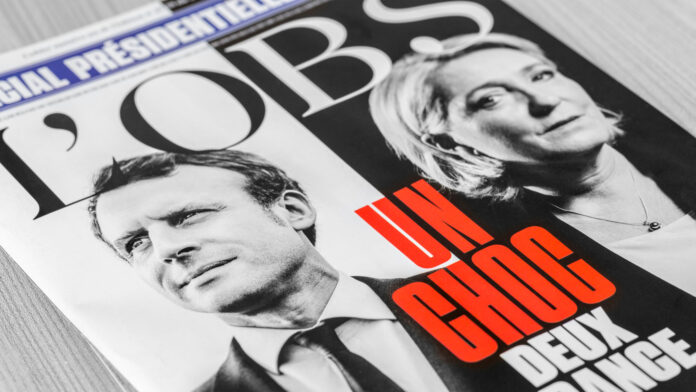Singapore-based UnaBiz, the front-runner in the race to buy Sigfox, has had its bid for the ailing French IoT firm blocked by the French Ministry of Economy, as political hyper-sensitivity around economic nationalism, and even protectionism, mounts ahead of the French presidential elections on April 24. For UnaBiz, the timing could not be worse, with a final decision on the sale of Sigfox due in a court in Toulouse tomorrow (April 14). Sigfox representatives said the sale had been “censored”, effectively, by political shenanigans.
As the presidential elections in France near a climax, about to enter the final week of campaigning, with presidential incumbent Emmanuel Macron going against far-right candidate ‘Marine’ Le Pen in the second-and-final round, the future of Sigfox, a tech-market sideshow in the scheme of things, appears to have taken on a new dimension. To be fair, it was predicted from the start, including in these pages, that UnaBiz’s own campaign could come unstuck because of its foreign domicile.
This appears to have come to pass, opening the door wider for France-based engineering firm OTEIS France, the only other ‘approved’ candidate in the running. On Monday (April 11), the Social and Economic Committee (CSE), representing the view of Sigfox staff in the case, got wind the Ministry of the Economy has “arbitrarily” blocked the UnaBiz deal, the implication goes, to avoid inflaming the nationalistic political macro-narrative being pushed by Le Pen in France.
Because UnaBiz is based outside of France, in Singapore, its acquisition of Sigfox requires IEF (Foreign Investments in France) authorization from the Ministry of the Economy. This authorisation was supposed to be a formality; UnaBiz chief executive and co-founder Henri Bong, who today (April 13) issued an open letter to Macron to appeal the politicising of Sigfox’s business interests, said he had been instructed by the Ministry previously during the sale process that IEF refusals are “very rare”.
However, the CSE has said the Ministry of the Economy is “delaying” its IEF consent until after the second round of the presidential election, scheduled for April 24 – until 10 days after the Toulouse Commercial Court is obliged to give its decision, scheduled for tomorrow (April 14). Bong’s letter represents a last-minute appeal to the highest political office in France, with good familiarity with the Sigfox story. Macron has less than 24 hours to intervene.
Enterprise IoT Insights understands UnaBiz – not just the most-preferred buyer, but also the keenest – would even consider re-registering its administrative headquarters in France. In the open letter, and in a number of blog posts on social media, Bong has emphasised his own ties with the country. He and co-founder Philippe Chiu are both French nationals; Bong moved to France as an infant and Chiu was born there. “I am French. I have devoted half of my career to serving the interests of France,” he writes. (He has been using the #ReviensLéon tag, about the dynamism of high-growth global French start-ups, in his communications.)

His letter to Macron states his disappointment at perceived political intervention in the sale procedure, which he claims in fact destabilises the French technology industry, and its chance to secure its future, as well as its past, as a leading contender in the IoT game. “Today, I must confess to being disappointed… Today, less than 24 hours before the deliberation of the Court of Toulouse, I have learned that our request [to the] IEF would be rejected by Bercy (Ministry of the Economy) – without any explanation of any sort,” he writes.
“The team in charge of the IEF procedure [has] indicated that refusals are very rare, and that our request did not raise any [concerns]. I therefore interpret this refusal as being due to specific issues certainly linked to the political context… I understand that the presidential elections are a priority for you today. However, I cannot understand that politics can deprive a company already in danger, [together with] its employees, of benefiting from the best project to save it – and even less accept [that politics can] deprive it of [the chance to decide] its own future.”
The letter goes on: “The fate of Sigfox is in your hands. Sigfox – today, like yesterday – is one of the symbols of IoT; a technology we wish to conquer. [It is a] guarantor of… economic sovereignty, a creator of jobs, [and one] of a leading group of companies that ensure the influence of French Tech. [We have the support of an] ecosystem [that is] anxious to secure these [IoT] technologies and these [IoT] companies in France – [to] make it possible to write [the] future [together in France].”
The CSE issued its own press missive yesterday (April 12) to declare the process as politically sullied, effectively. Antoine Maïer, spokesperson for the CSE, wrote: “According to the information we have, the UnaBiz offer is on hold… The Ministry of the Economy indicated to the CSE on April 11 that the file was complete, but still under investigation. This is worrying for employees whose fate [should] not depend on this authorization… Employees do not want political issues to interfere with their future, and do not understand that [political] considerations should deprive them of their jobs and put the technology in which they have invested at risk.”
Indeed, the CSE has come down, completely and defiantly, on the side of UnaBiz in the auction process. Maïer said: “The offer submitted by UnaBiz – by a former Sigfox employee and a current Sigfox operator, who knows the Sigfox ecosystem, and has the support of… Sigfox operators – is the most [viable]. The CSE has observed a corporate culture similar to Sigfox’s own, which reduces the risk of a talent [exodus]. The proposed financing is consistent; its diversification is credible and interesting. UnaBiz is legit and inspires confidence.”
But its frustration and alarm stems, as much, from a lack of transparency on the part of the Ministry of the Economy, leaving Sigfox “in the dark”, as much as its delaying tactics to forcefully exclude UnaBiz from the process. Maïer said: “Employees do not wish to remain in the dark and refuse that the Ministry of Economy arbitrarily eliminates this offer: they expect progress by tomorrow, either by an authorization for UnaBiz, or by a refusal based on communicated arguments.”
He said: “The employees have given their opinion, but their favourite risks being disqualified by the Ministry of the Economy… Employees refuse that the fate of their jobs depends on the political context of the election. They ask the Ministry of the Economy to complete the UnaBiz [authorisation] without delay, and issue a response. They do not lose hope, remain united, and are ready to mobilise so the Commercial Court of Toulouse can make a choice among all the takeover projects, in totally independent and without government censorship.”
Sigfox has around 180 staff in France, plus a similar number outside of France that are indirectly dependent on the outcome of its sale.

